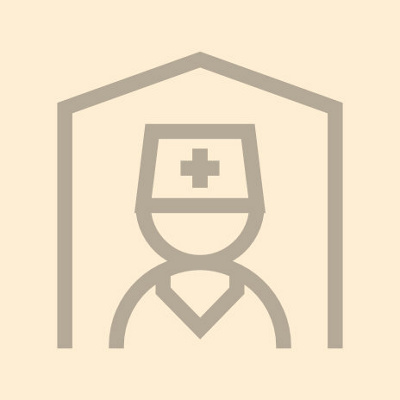Quality sleep is a cornerstone of overall health and wellbeing. A Mediclinic expert explains why.
Sleep is a biological necessity, says Neera Bhikha, a clinical neurophysiologist based at Mediclinic Sandton. “It’s the golden thread that links together good health and our bodies. For adults, the ‘sweet spot’ is seven to nine hours’ sleep a night: that’s one-third of our lives spent sleeping!”
The stages of sleep
Your brain plays a major role in initiating, perpetuating and then reversing sleep. A problem arises when the quality of your sleep is poor, and your healthcare professional may refer you for monitoring at a sleep laboratory to diagnose whether you have a sleep disorder.
In Bhikha’s sleep laboratory, a patient’s sleep physiology is assessed through a polysomnogram, which assists in the diagnosis of a sleep disorder. “Electrodes are attached to the patient to measure the sleep stages, which range from very light sleep (stage 1); deeper sleep (stage 2); the deepest non-rapid eye movement (REM) sleep (stage 3); to even deeper slow-wave and REM sleep. Together with that, we monitor oxygen levels and respiration,” she says.
The restorative power of sleep
Sleep is a key part of remaining healthy and productive, and reducing stress. While you sleep, various hormones are released, restoring your brain function and body. Deep, rapid eye movement (REM) sleep repairs the impact of the daytime cerebral “wear and tear”.
“The magnitude of the brain’s function is unbelievable,” says Bhikha. “As you sleep, your memory and learning are consolidated, and other essential daytime functions are restored.”
Certain brain structures work together to initiate sleep and ensure that you stay asleep, such as the:
- Hypothalamus – controls sleep and arousal
- Suprachiasmatic nucleus – a cluster of nerve cells in which the sleep-wake patterns form
- Brainstem – communicates with the hypothalamus (brain area that produces hormones to control your body temperature, heart rate, and hunger)
- Pineal gland – secretes the hormone melatonin to control the circadian cycle of sleep and wakefulness
- Basal forebrain – promotes sleep and wakefulness
- Midbrain – part of the arousal system.
“During sleep, a host of neuro-endocrine hormones are secreted, even growth hormones and hormones that control your food satiety. If you don’t go through the various sleep stages at night, you’re more likely to gain weight,” explains Bhikha. “This is why we encourage patients to have good-quality, non-disrupted sleep, because it allows the physiology of the brain to be restored.”
Bhikha says an unhealthy sleep routine also creates a “sleep debt”, making you fatigued and less able to concentrate, which leads to cognitive decline.
Digital detox and a good sleep routine
There is no switch that can be turned on and off for sleep, but you can tune your body for sleep. “One of the most important aspects of the sleeping cycle is regularity and having a good sleep schedule. An hour before bed, stay away from all intoxicants or stimulants, such as alcohol or caffeine, and electronic devices with screens. Set aside this time for a wind-down period to ensure good-quality sleep. Winding down leads to drowsiness and light sleep followed by deep REM sleep.”
By creating the right environment, including cooling down the room, you can help to trigger sleep, says Bhikha.
Sleep disorders
The two major sleep disorders that Bhikha treats in her practice are obstructive sleep apnea (OSA) and insomnia, a disorder that makes it hard to fall asleep and stay asleep.
She describes OSA as a “hidden epidemic”. OSA can be life-threatening if left untreated as it causes interruptions or pauses in breathing. The upper airways briefly collapse, causing breathing to stop, which results in too little air going to the lungs. This in turn leads to fragmented sleep patterns, resulting in chronic daytime sleepiness. “If this epidemic is left untreated, it can lead to hypertension and cardiac problems, including strokes and other high-risk comorbidities. The sooner the patient is diagnosed and treated, the better.”
The first-line treatment for OSA is a continuous positive airway pressure (CPAP) machine, which helps patients breathe at night by directing a steady flow of pressurised air into their nose and mouth as they sleep. Patients must adjust to wearing the mask, but the health benefits are enormous.
Bhikha encourages patients with primary and secondary insomnia to attend cognitive behavioural therapy (CBT) sessions. These are “talk” sessions with a trained therapist to help them reframe their behaviour patterns. In addition, they’re asked to keep a sleep diary, maintain a healthy diet, and get adequate exercise. Underlying psychiatric and medical issues can also contribute to insomnia, as can life issues.
Hormones and sleep
Hormones play a crucial role in sleep. Some insomnia patients find they are wide awake in the early hours of the morning and the reason for this is often hormonal.
“From 2-3am, your cortisol levels naturally rise,” Bhikha explains. “Cortisol, a stress hormone, plays a pivotal role in managing your sleep architecture. Hormonal insomnia is also a reality for women going through fluctuating hormonal levels around menopause, and often, we need to restore this biological clock through hormone replacement therapy (HRT) so the patient can get effective sleep.”
Your circadian rhythms are controlled by various hormones: growth hormones; melatonin (which is only secreted in the dark); cortisol; leptin (regulates food intake); and ghrelin (the ‘hunger hormone’, that tells your brain when your stomach is empty).
“Maintaining a regular light-dark, day-night cycle is important. If you don’t reach your nightly sleep cycles, certain hormones are not going to be secreted and your circadian rhythms will be disrupted as well as your metabolism. Sleep deprivation can result in a whole cascade of illnesses, so it’s important to have a well-rested brain.”
To find a health professional near you, go to www.mediclinic.co.za
Further publications on the topic


